One Foot In Heaven – The Story of Bob Lindsey of Jerusalem
$14.95
Description
by Kenneth R. Mullican, Jr. and Loren C. Turnage
Electronic Book: 130 pages in PDF Format
ISBN 1-4137-6381-2
One Foot in Heaven is the intriguing story of Robert L. “Bob” Lindsey’s more than four decades in Palestine and Israel, most of the time serving as pastor of a Baptist Church in Jerusalem. No one loved the land of the Bible and the people of the land, including Jews, Arabs, and expatriates, more than Bob Lindsey. With strong faith and a sense of humor he faced the challenges of wars, fire bombing by religious radicals, and losing his left foot from an antipersonnel mine explosion while helping an Arab youth return to Israel.
On one occasion when Lindsey was not feeling well, his son-in-law remarked, “You’re moving like you have one foot in the grave!” Lindsey replied with a grin, “No, not one foot in the grave–I have one foot in Heaven!”
The mentor of David Bivin and so many of today’s outstanding Christian scholars affiliated with the Jerusalem School of Synoptic Research in Israel was Dr. Robert Lindsey. The beloved “Dr. Bob” was a remarkable person. Godly and brilliant, scholarly and yet pastoral, Bob Lindsey was a rare man of impeccable integrity and exceptional insights into the Gospels.
Many know of his scholarly research, increasingly recognized by New Testament scholars as truly groundbreaking, but not many know the man behind the genius. Good news: Bob’s story is masterfully told in this new biography, written by his son-in-law, Ken Mullican, and old friend, Loren Turnage. One Foot in Heaven (a reference to Bob’s losing a foot to a land mine while trying to rescue an Arab boy in Jerusalem) recounts many wonderful and extraordinary stories about Bob — his life, his family and their lives in Israel for more than forty years, beginning even before statehood. This is a story that you will not want to miss! Read it and share it with others.
Enjoy a sample of the book:
ONE FOOT IN HEAVEN
THE STORY OF BOB LINDSEY OF JERUSALEM
KENNETH R. MULLICAN, JR.
AND
LOREN C. TURNAGE
Copyright © 2005 by Kenneth R. Mullican, Jr.
All rights reserved.
No portion of this book may be reproduced in any
form, except for brief quotations in reviews, without
written permission from the publisher.
DEDICATION
To Margaret Lutz Lindsey
She is not only an integral part of the story,
but without her willingness to share intimate details, letters, and photographs,
this story could not have been written.
TABLE OF CONTENTS
1 NO MAN’S LAND
2 EDWARD AND UNCLE BOB
3 MISSING
4 THE MAN I WILL MARRY
5 NIKKO THE BEAUTIFUL
6 A SHIPBOARD ROMANCE
7 MEETING THE FAMILY
8 WITH THIS RING I THEE WED
9 HOW THE JOURNEY BEGAN
10 PREACHER BOY
11 FAMILY MAN
12 RETURN TO PALESTINE
13 BAPTIST HOUSE
14 THE PARTITION OF PALESTINE
15 BIRTH PANGS OF A NATION
16 LIFE IN THE NEW STATE OF ISRAEL
17 A DOCTOR IN THE HOUSE
18 A QUIVER FULL OF ARROWS
19 THE EXPANDING HORIZON
20 SYNOPTIC PROBLEM
21 RETURN OF A RELUCTANT HERO
22 LIFE WITH A LIMP
23 SOLVING THE PUZZLE
24 WARS AND RUMORS OF WAR
25 EMPOWERED
26 THIRTIETH ANNIVERSARY
27 BEAUTY FOR ASHES
28 SWIMMING UPSTREAM
29 HIGH PROFILE PEOPLE
30 A CHANGE OF PACE
31 HENAY ANI ADONAI
EPILOGUE: THE LEGACY
PREFACE
One Foot in Heaven is the story of Robert L. “Bob” Lindsey’s more than four decades in Palestine and Israel, most of the time serving as pastor of a Baptist Church in Jerusalem. No one loved the land of the Bible and the people of the land, including Jews, Arabs, and expatriates, more than Bob Lindsey. With strong faith and a sense of humor he faced the challenges of wars, firebombing by religious radicals, and losing his left foot from an antipersonnel mine explosion while helping an Arab youth return to Israel. On an occasion when Bob was not feeling well, his son-in-law Ken Mullican remarked, “You’re moving like you have one foot in the grave!” Bob replied with a grin, “No, not one foot in the grave—I have one foot in heaven!”
Bob was known and respected by countless individuals whose names do not appear on the pages of this book. Those who were selected by the authors were chosen primarily because their interaction with Bob demonstrates some aspect of Bob’s character and secondarily because sufficient documentation of their relationship with Bob was available.
The researching of the book proved to be an interesting and inspiring process as the authors discovered new information about Bob’s life. Attempting to accurately portray someone’s life with selected moments and relationships, however, is a daunting task. He was a serious but relaxed, fun-loving but caring, disciplined but impulsive, Greek and Hebrew scholar and practical pastor and he enjoyed interacting with people of every walk of life. His intriguing story should be enjoyed by a wide range of readers.
FOREWORD
The death on May 31, 1995 at age seventy-seven of Robert L. Lindsey, pastor, synoptic researcher, pioneer translator of the gospels into Modern Hebrew, and doyen of the Jerusalem School of Synoptic Research, was received with a great sense of loss by those who knew and loved him. His colleagues and students remember Dr. Lindsey as a giving, selfless individual and a dedicated biblical scholar. His Christian students and friends also remember a pastor named Bob who, always aiming at helping the congregants put Jesus’ teachings into practice, infused his sermons with the refreshing insights of Jerusalem-based scholarship.
When I came to Israel in 1963 to begin graduate studies at the Hebrew University of Jerusalem, Dr. Lindsey was forty-five years old. He and his family had moved recently from Tiberias to Jerusalem. It had been in Tiberias, beside the Sea of Galilee, just eighteen months before, that he had stumbled upon the key to the Synoptic problem’s solution: Luke’s Gospel was not dependent upon Mark’s.
In Jerusalem, “Bob” Lindsey became my pastor, my mentor and my second father. As pastor of the Narkis Street Baptist Church in the Rehaviah neighborhood of Jerusalem, Bob was my spiritual leader for twenty-four years (from 1963 until his retirement in 1987). Eventually, I served under him as one of the congregation’s elders. Listening to his sermons, adult Bible class lessons, and through hundreds of private lessons, I absorbed some of his immense knowledge of Jesus.
Only twice during my first seventeen years in Israel could I afford a visit to my parents in the United States. Bob and his wife, Margaret, became my surrogate parents. When Josa and I were married in 1969, Bob and Margaret not only provided us with their cabin overlooking the Sea of Galilee for our honeymoon, but Bob chauffeured us there from Jerusalem! That kind deed took more than five hours of driving.
Now that Bob is gone, I feel orphaned, much like the famous scholar, Rabbi Akiva, upon the death of his teacher, Eliezer ben Hyrcanus. When Akiva met the men carrying Eliezer’s body from Caesarea to Lydda, he rent his garments, tore his hair, and began to weep and cry out: “Woe is me, my master, because of you! Woe is me, my teacher, because of you! You have left the whole generation fatherless!” At Eliezer’s funeral, Akiva eulogized him, “My father! My father! The chariots and horsemen of Israel! I have many coins, but no money changer to exchange them,” that is, “I have many questions, but no teacher to answer them.”
I have accepted the reality—Bob is no longer here. I have realized, reluctantly, that he was not mine permanently. Beruriah, the brilliant scholar of the second century A.D., had the painful task of telling her husband, Rabbi Meir, that their two sons had died. Before breaking the awful news to him, she prepared him: “Some time ago,” she said, “a certain man asked me to hold a pledge in trust for him. Now he wants it back. Should we return it?”
“One who is entrusted with a pledge,” he answered, “must return it to its owner upon demand.”
Then Beruriah informed Meir of the tragedy. Rabbi Meir wept and cried out, but Beruriah reminded him of his own recent advice. Rabbi Meir ceased his wailing and said: “The Lord has given. The Lord has taken away. Blessed be the name of the Lord.”
Like Rabbi Akiva, I have grieved the loss of my teacher; but like Beruriah, I know that Bob is now with the Lord. Moreover, I am further comforted because his scholarly work continues—through the disciples he raised up, through a research institute, the Jerusalem School of Synoptic Research, and through Jerusalem Perspective Online (www.JerusalemPerspective.com), which publishes the results of his students and colleagues research.
Indeed, Robert Lindsey continues to impact the lives of countless individuals. He raised up a circle of disciples, and now they too are raising up disciples. The movement he birthed continues to expand quietly—like a small seed! Robert L. Lindsey’s discoveries will force a revolution in New Testament scholarship. One day they will topple the Synoptic theories now held by a majority of scholars. Generations may pass before the correctness of his approach becomes evident to the wider circle of New Testament scholars, but happily, those of us who have been trained in Lindsey’s methodology can already enjoy the fruit.
Baruch dayan ha’emet! Blessed be the Faithful Judge!
David Bivin
Jerusalem, Israel
April 2004
CHAPTER 1
No Man’s Land
Shadowy figures moved silently among the war-torn buildings lining the Jordanian side of the narrow strip of no man’s land separating Arab East Jerusalem from Jewish West Jerusalem. They were not far from Mandelbaum Gate, a checkpoint near the ancient walled city. A slender American who appeared younger than his forty-four years was accompanied by a fifteen year old Palestinian youth. The night of September 13, 1961 was cool (due to the elevation of Jerusalem) and dry—no rain had fallen in more than five month¬s—the autumn rains had not yet begun in the Holy Land.
As a cloud passed before the moon, the pair carefully continued picking their way among the debris. They had to be extremely careful—every sound seemed to be magnified in the night—and soldiers on both sides of the border could be listening. They ducked into the shadows as the moon emerged from behind the passing cloud. The quiet was shattered by a dog barking nearby. A small child howled his displeasure and a voice shouted angrily in Arabic, “Ouscut, ya kelb! Ouscut!” (“Shut up, dog! Shut up!”) The muffled voices of the soldiers on the Israeli side of the checkpoint, punctuated by laughter, floated across the narrow strip. Only a little further and the pair would be able to reach a place where they could slip undetected across to the Israeli side. They were ready to proceed as soon as the moon passed behind the clouds.
Suddenly the two stiffened when they heard the clicks of weapons as a Jordanian Legionnaire patrol prepared to fire. “We’ve been spotted!” the American whispered in alarm to the youth. “We’ve got to go back! Keep low and stay close to me!” Bending as low to the ground as they could, the two retreated quickly in the direction from which they had come.
Without warning the world exploded! In spite of the intense ringing in his ears, the American heard, from seemingly far away, soldiers shouting from both sides of the border. Slowly, reality began to dawn and he realized that he had detonated one of the dozens of antipersonnel mines planted in the desolate no man’s land. As his mind began to clear, his first thought was for the safety of his young charge. “Edward! Edward! Where are you?” he shouted.
“Over here, Uncle Bob! I can’t see! I can’t see!”
“Oh, dear God, no!” moaned Bob. Mercifully, his body’s initial release of endorphins had numbed Bob’s wound so that he was not yet aware of the extent of the damage to his mangled foot. He was aware, however, that he was bleeding profusely and that unless he was able to stop the bleeding, he would not be able to get them out of there. Even in their traumatized state, it was clear to the wounded pair that they were going to have to get out of the minefield themselves—no one was coming after them. It was obvious that neither the Jordanians nor the Israelis were going to venture into a minefield in the dark and they could be dead by morning. Breathing a prayer, Bob calmly removed his belt and used it as a tourniquet. He couldn’t tell if it was working or not—clouds obscured the moon, and there was blood everywhere.
The Israelis, speaking Hebrew, were urging them forward, while the Jordanians, speaking Arabic, were threatening to shoot them unless they returned to the Jordanian side. Although Bob and Edward understood both Arabic and Hebrew, at first they answered neither, since they feared speaking either Arabic or Hebrew might cause the opposing side to shoot them. As Bob crawled over to Edward, he fought waves of nausea and the urge to slip into unconsciousness as the initial numbness of his wound wore off. “Edward, I’m so sorry—I’m so sorry!”
“It’s ok, Uncle Bob,” Edward moaned. “It’s ok.”
The Jordanian soldiers continued to threaten and to demand that they return to the Jordanian side. “I don’t think we have any choice but to try to crawl back to Jordan,” Bob concluded sadly. “There is too much chance of being shot by the Jordanians or of crawling into another mine before reaching Israel. Can you see well enough to follow me as I crawl?”
“I think so,” responded Edward weakly. “I can see a little bit out of one eye.”
At this point Bob shouted in English, “Don’t shoot! We need help!”
When it was apparent that the wounded pair was turning back to Jordan, they were instructed to lie still while the Jordanians decided the best course of action. As they lay waiting for directions to crawl out of the minefield, Edward suddenly asked, “Uncle Bob?” “Yeah, Edward?” “How’s Barbara doing?” Edward had shown more than a brotherly interest in Bob’s second daughter for some time.
“Much better than we’re doing at the moment, I trust,” Bob responded wryly.
After what seemed to be an eternity, Jordanian soldiers began to shout directions for crawling out of the minefield. As they began to crawl, Bob’s belt slipped and blood spurted from the severed arteries. He quickly secured it again, a routine he was forced to repeat several times. They then continued the painful, circuitous route toward captivity. As the Jordanian soldiers carried on a lively discussion as to the best route through the minefield, the pair crawled slowly forward, inch by inch, half expecting to hear another deafening roar, that, this time, would end it all. Finally, more than two hours after the explosion, they exited the minefield and crawled into the waiting arms of the Jordanian Legionnaires.
Bob groaned as the army truck navigated the rough, narrow streets traveling the short distance to the hospital. He hardly dared to think of the enormous, international repercussions of his impulsive attempt to return the Arab youth to the Baptist Center in the Central Sharon Plain near Petah Tikva, the only home Edward had ever really known. What effect would this incident have on Bob’s wife and six children? What effect would it have on Baptist work in Israel? Would all the Baptists serving in Israel be forced to leave because of this incident, or would only he and his family have to leave? That is, if he ever got out of prison. What about the Baptists serving in Jordan? How would the incident affect them and their work? And what about Edward? Would he be blind or partially blind? A great, dark cloud of uncertainty and regret settled over Bob Lindsey as he lay in the hospital awaiting surgery on his mangled left foot. Instinctively, he desperately cried out to God, “Lord, you know my heart. Have mercy on Edward and me and those we hold dear. Somehow, Lord, bring good out of it.”

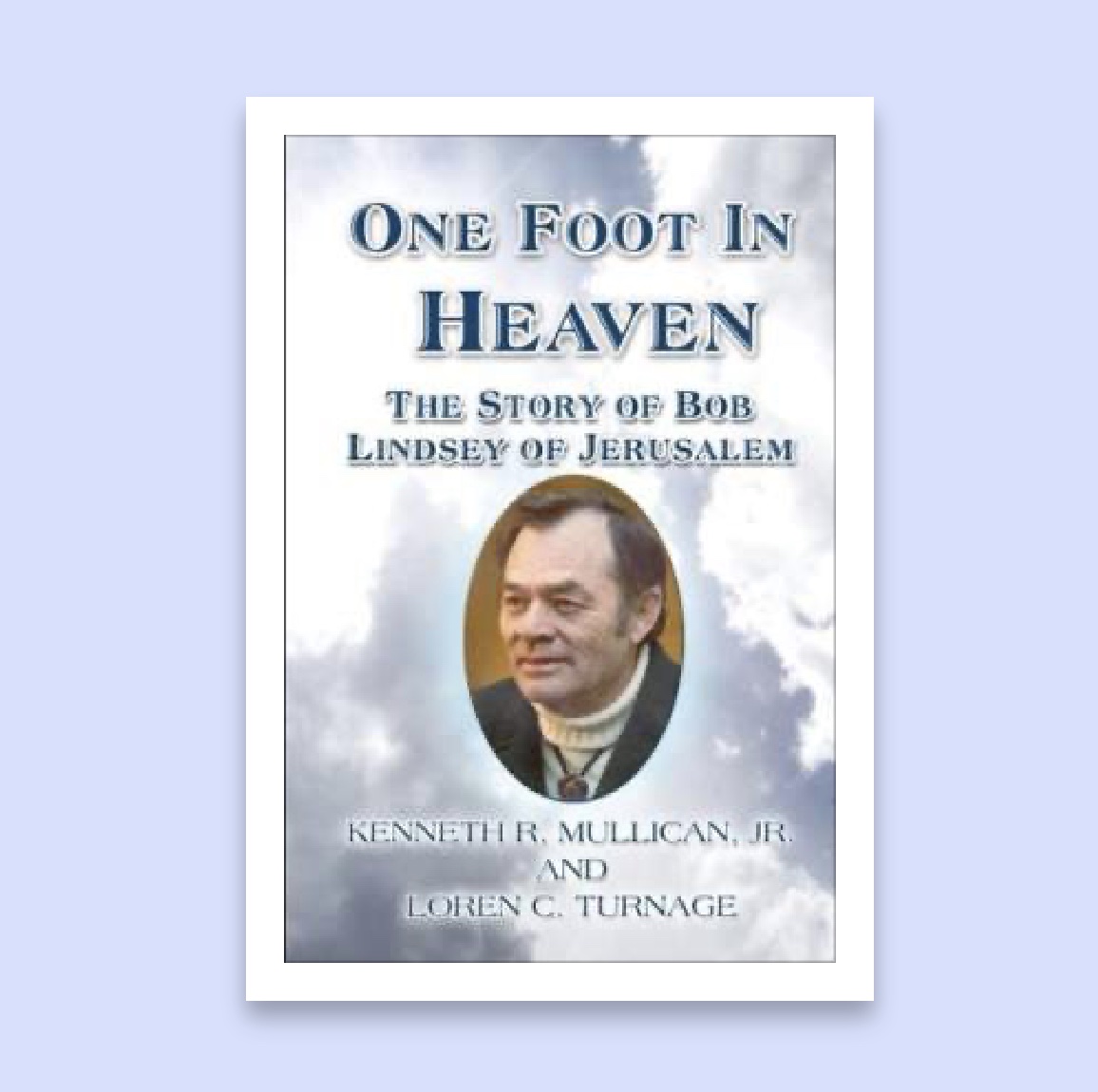
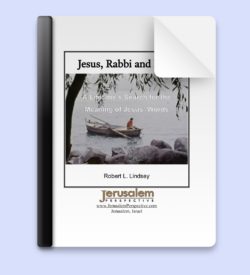
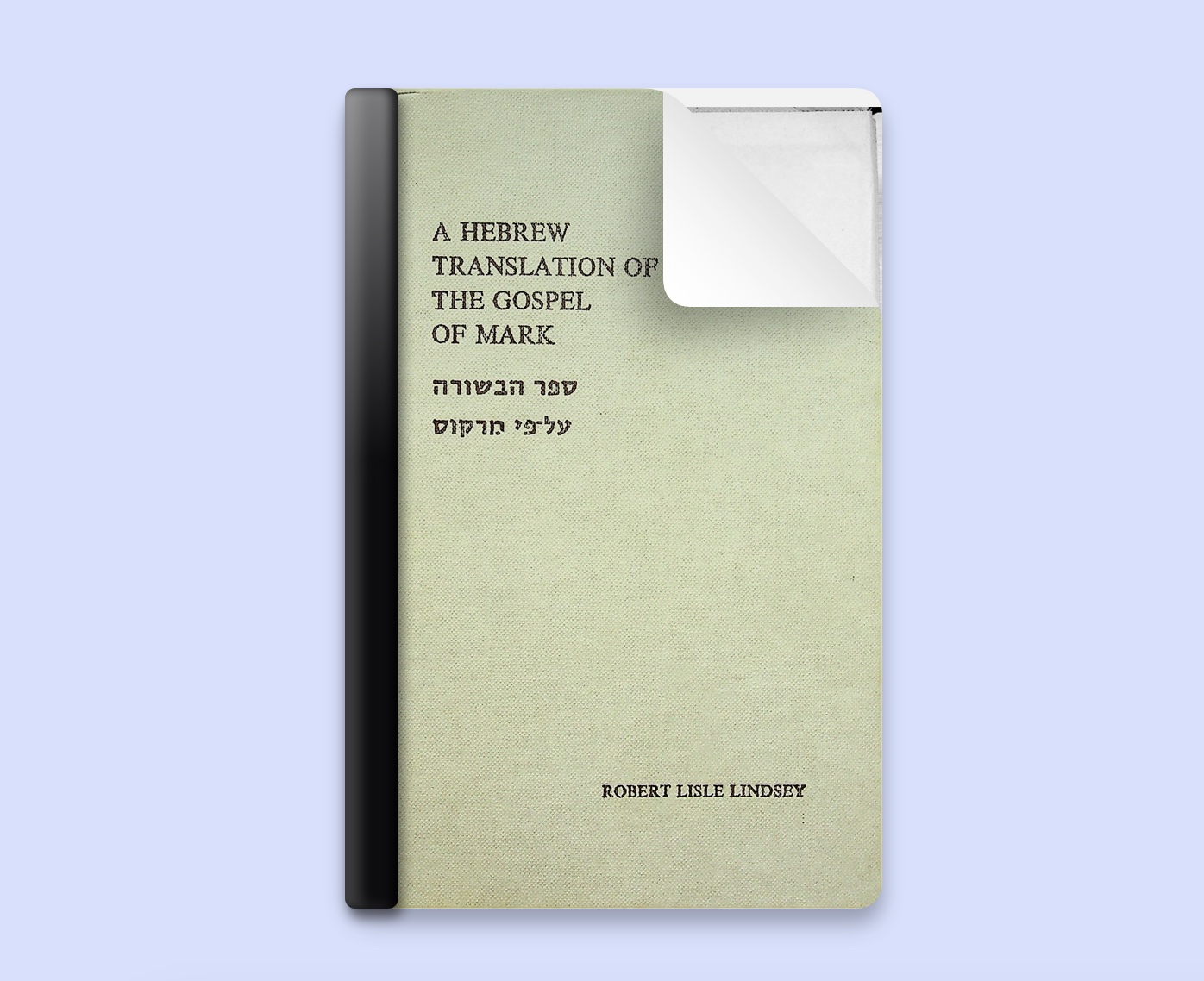
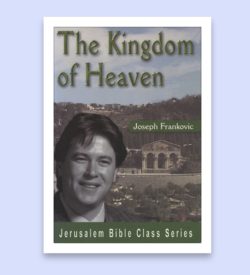
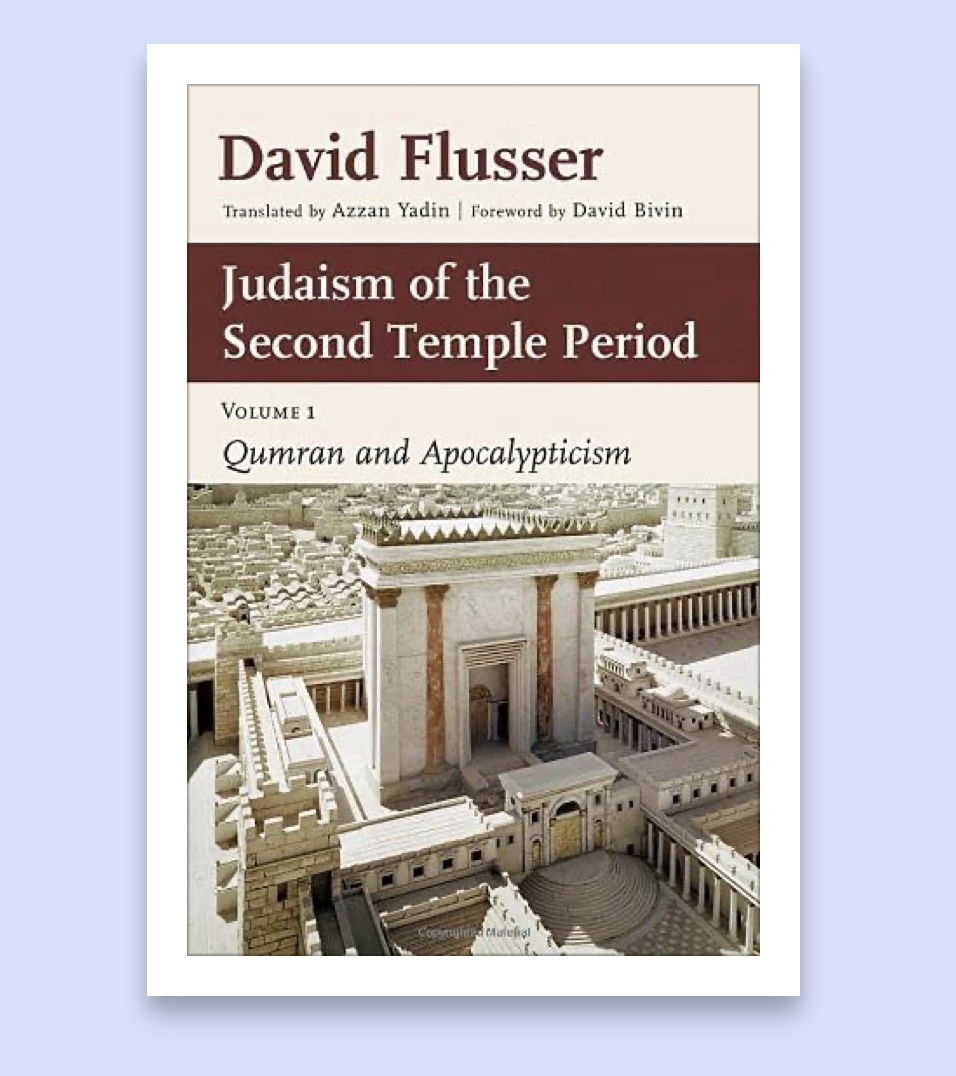
Reviews
There are no reviews yet.